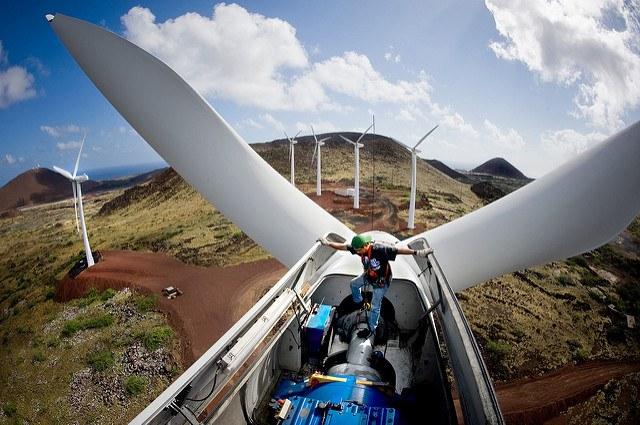
By Alli Gold Roberts
As state legislatures kick off new legislative sessions around the country, clean-energy policies will likely remain on the agenda in a number of states.
Unprecedented business support for climate action and clean energy investments will be a key factor for legislatures hoping to attract the attention of businesses interested in seizing fast-emerging clean energy opportunities. More than 720 companies and investors (and counting) are calling on President Trump to support the Paris Climate Agreement and state and federal low-carbon policies. Many of the companies are iconic household-name brands that have already made significant investments in renewable energy and energy efficiency in states with supportive policies.
While lawmakers get to work tackling budget deficits, unemployment, infrastructure, public health concerns and more, the opportunity to deepen their commitments to clean energy is growing. Strong, stable clean energy policies are proven winners in providing carbon-free, cost-competitive power that is spurring economic development and creating new jobs.
According to a new analysis by the Retail Industry Leaders Association and the Information Technology Industry Council, state policies are making it far easier for the retail and information technology sectors to procure renewable energy and expand customer choices on energy sourcing.
For example, Iowa has tapped its abundant wind energy resources to attract numerous large corporate buyers with utility green tariffs and third-party power purchase agreements (PPAs). Google and Facebook have procured more than 500 megawatts of wind power with Iowa’s major utility, MidAmerican Energy, resulting in new jobs, tax revenues and other economic benefits. The state can secure additional corporate investments by making it easier for companies to do onsite renewable energy projects, too.
Utility green purchasing options, access to third-party clean energy solutions and community solar are just a few of the policy mechanisms that large commercial and industrial customers can use to meet their increasingly ambitious carbon reduction goals.
Renewable energy and energy efficiency portfolio standards, which set specific statewide goals for efficiency gains and renewable energy sourcing, are also catalyzing significant utility investments in clean energy, which are diversifying their energy supplies and reducing reliance on new, oftentimes more costly fossil fuel plants. Analysis by the Lawrence Berkeley National Laboratory shows that renewable portfolio standards are saving states billions of dollars due to reduced air pollution, reduced public health impacts and other societal benefits.
In the waning days of 2016, governors and legislatures in Illinois, Michigan, New York and Ohio all demonstrated their continued support for clean energy. And, with renewable energy costs getting cheaper and companies ramping up their commitments, we expect this momentum will continue in 2017. It is now up to state policymakers to seize on this positive momentum by enacting clean energy policies that will benefit both their economies and the climate.
Image credit: U.S. Air Force photo/Lance Cheung via Flickr
Alli Gold Roberts is a state policy manager at Ceres, a nonprofit sustainability organization mobilizing companies and investors to take stronger action on climate change and other global sustainability challenges. Roberts leads the organization’s clean energy policy initiatives in the Midwest, Southeast and New England regions.
TriplePundit has published articles from over 1000 contributors. If you'd like to be a guest author, please get in touch!














